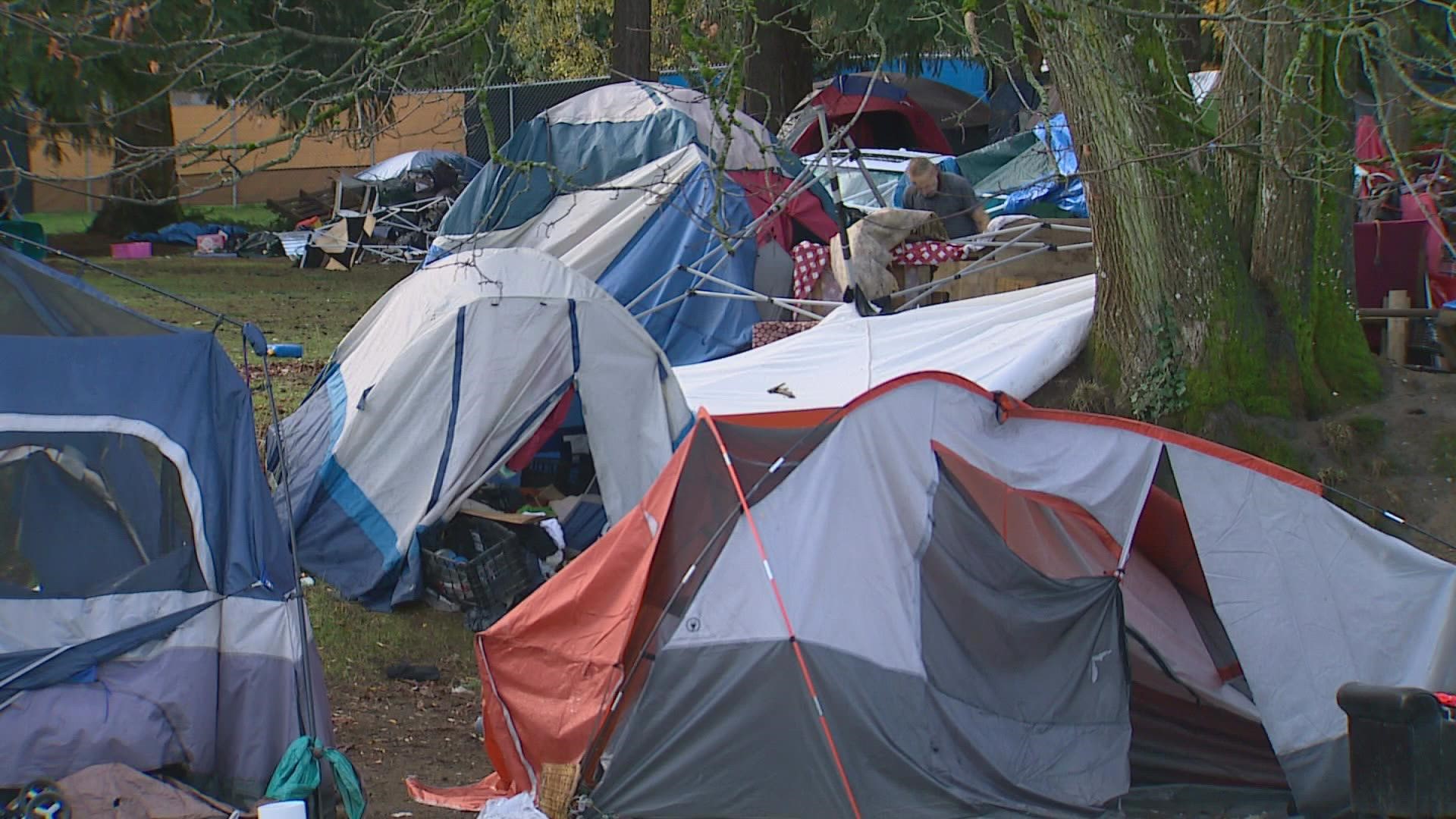SEATTLE — Just a few people remained Wednesday from the 50 or so homeless who took over a park right next to Broadview-Thomson K-8 for more than a year in Seattle’s Bitter Lake neighborhood.
The city of Seattle is planning to clear what remains of the camp on Thursday.
"I think we have turned a corner," said Josh Castle, of the Low Income Housing Institute (LIHI).
About 32 of the homeless residents from the Broadview-Thomson camp agreed to stay at the Friendship Heights Tiny House Village run by LIHI. Over the last week, the city said 12 homeless residents had been referred to the village.
The LIHI is one of at least five agencies now partnering with the city to put more homes and shelter spaces on the market. That means people have more options as soon as they choose to get off the streets.
"The problems of homelessness and lack of affordable housing are enormous," said Castle. "It's going to take a while to solve, but I think these programs are starting to make a difference."
Until Tuesday, one of Seattle's biggest camps was located at Ballard Commons Park. Now it's empty.
City Councilmember Dan Strauss held a news conference right across the street from the park Wednesday, touting what he hopes will be a new era in the way the city handles the homeless.
Instead of police sweeping homeless encampments with just two days’ notice, people living in the camps will get more like two months to figure out a plan with city outreach teams.
A more thoughtful and less rushed approach, with options on where to go, is expected to allow people time to get stable, connect with services and make the transition from the streets to the help they need.
Homeless advocates said 80% of those at the Ballard camp had mental health or addiction problems.
“We're giving them time to build trust between providers,” said Strauss. “We're giving them time to get people inside. We're finding and creating adequate shelter and housing. That result is people getting inside instead of being displaced.”
The plan is funded by a controversial payroll tax that is now providing about $50 million a year for additional beds, shelters and housing for the poor.
Strauss stressed people will need to be patient to see how this experiment works out.
Wednesday marked the midway-point of a four-year plan to make a significant impact on homeless camps in Seattle.
"I hope this work will be replicated across the city," said Strauss.
The city will likely focus on a camp in Woodland Park next, where the camp has been established for more than a year.
When asked what would stop more homeless people from simply setting up camp inside city parks tomorrow, Strauss said there will be strict enforcement of "no trespassing" rules.
"It's a lot easier to stop a camp when it's just one tent," said Strauss.

